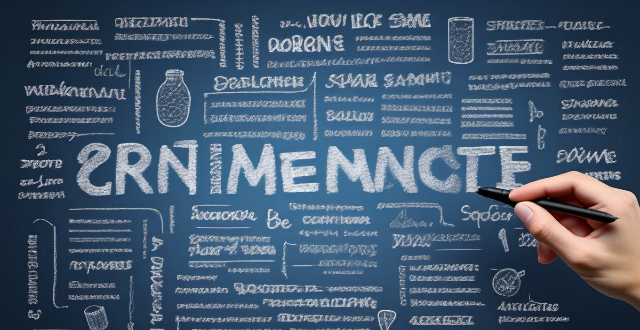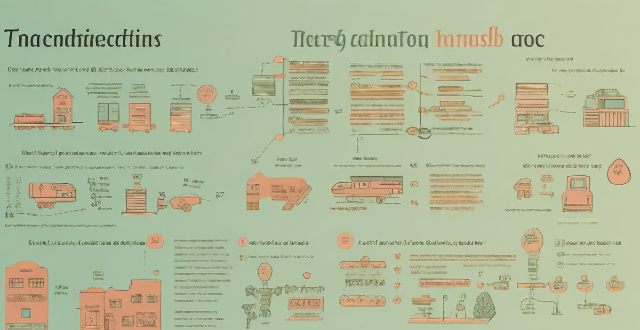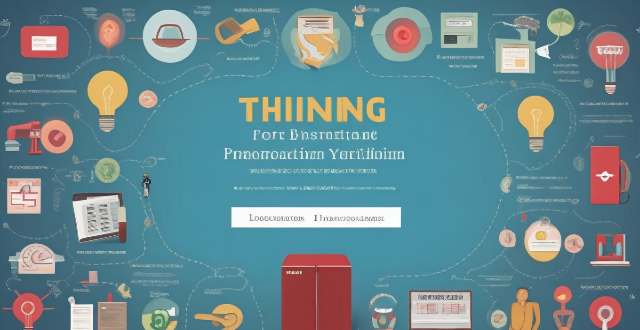Problem Math

What resources are available to help me practice and master math problem-solving ?
To master math problem-solving, various resources are available, including online platforms like Khan Academy and Mathway, books such as "How to Solve It" by Polya, and video tutorials from YouTube channels like Numberphile. Practice worksheets from websites like Math Drills and IXL Math can also aid in skill development. Regular and consistent use of these resources can enhance one's ability to solve complex math problems and build a strong mathematical foundation.

Is it necessary to have a strong math background to learn programming effectively ?
Is it necessary to have a strong math background to learn programming effectively? Programming is a complex field that involves various skills and knowledge. One of the most common questions asked by beginners is whether having a strong math background is necessary for effective learning of programming. In this article, we will explore this question in detail. Mathematics plays a crucial role in programming, especially in areas such as data analysis, machine learning, and game development. However, it is not absolutely necessary for all types of programming. For example, if you are developing simple web applications or writing scripts to automate tasks, a strong math background may not be required. If you plan to work in fields like data science or game development, then having a good understanding of mathematics can be very beneficial. If you feel that your math skills are lacking, there are several ways to improve them through online courses, reading books, practicing problem solving, and joining study groups. With dedication and effort, anyone can improve their math skills and become an effective programmer.

How do I approach complex math problems and find solutions ?
When facing complex math problems, it's essential to have a systematic approach that helps you break down the problem into manageable parts. Here's a structured way to tackle such challenges: 1. Understand the Problem: Read the problem carefully and identify key information and variables. Clarify any doubts or ambiguities before proceeding. 2. Plan Your Approach: Select an appropriate strategy based on the type of problem (algebraic, geometric, etc.). Outline the steps you will take to solve the problem and estimate the difficulty and time required for each step. 3. Execute Your Plan: Start with the first step of your plan, work through each step methodically, making sure each calculation is correct. Use scratch paper to keep your work organized. 4. Review Your Work: Re-read the original problem to ensure your solution addresses what was asked. Verify your answer makes sense in the context of the problem and double-check your calculations for accuracy. 5. Seek Help if Needed: If you are stuck, try approaching the problem from a different angle. Discuss the problem with peers or a teacher to get new insights. Utilize online resources or textbooks for additional explanations and examples.

How can I develop better number sense and estimation skills for problem-solving ?
Number sense is a crucial skill for effective problem-solving, involving an intuitive understanding of numbers and their relationships. It's important for efficiency, flexibility, and confidence in handling numerical tasks. To improve your number sense and estimation skills, practice rounding and estimating, use benchmark numbers, work with different representations, engage in mental math exercises, analyze mistakes, and seek out challenging problems. Consistent practice and real-world applications are key to developing a more intuitive understanding of numbers and enhancing problem-solving abilities.

Why can't you do the last math question in the college entrance examination? What's the significance

How can mind mapping improve creativity and problem-solving skills ?
Mind mapping is a tool that enhances creativity and problem-solving skills by providing a visual way to organize information. It stimulates brainstorming, enhances visualization, and promotes collaboration for creative thinking. Mind mapping also aids in problem-solving by identifying core issues, providing clarity and focus, and facilitating decision making.

What steps should I follow when solving a word problem in mathematics ?
Solving word problems in mathematics can be challenging, but by following a step-by-step approach, you can simplify the process and increase your chances of finding the correct solution. The first step is to read the problem thoroughly, identifying all relevant information and understanding what is being asked. Next, plan your approach by deciding on a strategy, breaking down the problem into smaller parts if possible, and drawing a diagram to visualize the problem. After that, solve the problem by writing down the equations or expressions you will use, solving them step by step, and checking your work to make sure your answer makes sense and satisfies the original conditions of the problem. Finally, write your answer in a clear and concise manner, explain how you arrived at it if necessary, and check your work again to make sure you didn't make any careless mistakes. By practicing these steps, you should be able to solve most word problems in mathematics.

Does exercise influence executive functions, such as decision-making and problem-solving ?
Exercise has a positive impact on executive functions, including decision-making and problem-solving. Regular physical activity can enhance cognitive functioning, risk assessment, self-control, creative thinking, working memory, and attention, leading to improved performance in these areas. Incorporating exercise into your lifestyle can benefit both your physical and cognitive health.

How do project-based learning and problem-solving activities fit into innovative teaching methodologies ?
Innovative teaching methodologies emphasize project-based learning (PBL) and problem-solving activities to engage students, foster critical thinking, and develop practical skills. PBL involves students in complex, meaningful projects that connect classroom learning with real-world scenarios, promoting deeper understanding, skill development, and motivation. Problem-solving activities challenge students to identify issues and find effective solutions, enhancing their critical thinking, decision-making, and resilience. Integrating PBL and problem-solving into innovative teaching involves identifying key concepts, designing relevant projects, incorporating problem-solving elements, providing resources, facilitating collaboration, scaffolding instruction, reflecting and evaluating, and assessing holistic performance. This approach creates a dynamic learning environment that prepares students for future challenges and fosters a love of lifelong learning.

Is social media addiction a real problem, and how can it be addressed ?
Social media addiction is a growing problem with significant impacts on mental health, relationships, and productivity. Recognizing the signs of addiction, such as excessive use or neglecting important activities, is crucial for addressing the issue. The negative effects include mental health issues, relationship problems, and reduced productivity. To combat social media addiction, individuals can set limits on usage, find alternative activities, practice mindfulness, and seek professional help if needed.

What are the benefits of preschool education ?
Preschool education is crucial for children's future academic success and overall development, offering benefits in social development, cognitive growth, early literacy and math skills, fine and gross motor skills, self-help abilities, school readiness, and parental involvement. It helps children develop interpersonal skills, emotional intelligence, language skills, problem-solving abilities, reading readiness, math concepts, hand-eye coordination, physical fitness, independence, life skills, routine adaptation, classroom etiquette, family partnerships, and parent education. Preschool prepares children for elementary school by nurturing their social, emotional, cognitive, physical, and self-help skills in a stimulating and supportive environment.

How can I create a safe and stimulating home environment for my child's early years ?
Creating a safe and stimulating home environment for your child's early years is crucial. Here are tips to achieve this: **Safety First**: Childproof the house, prevent falls, supervise children, and have an emergency plan in place. **Stimulating Environment**: Offer a variety of toys, reading materials, art supplies, music, dance, and nature exposure. **Emotional Support**: Use positive reinforcement, maintain routine, spend quality time, and model positive behavior. **Cognitive Development**: Introduce problem-solving games, encourage curiosity, teach math concepts, and promote language development. **Physical Health**: Provide a balanced diet, encourage physical activity, and establish healthy sleep habits.

What are some examples of successful educational games and what makes them effective ?
Educational games have become popular for engaging students and making learning enjoyable. Successful examples include Minecraft: Education Edition, Kahoot!, Osmo Genius Kit, and CodeCombat. These games are effective due to their engagement, adaptability, immediate feedback, collaboration, and real-world application. Incorporating these elements can create a more enjoyable and effective learning experience.

How can teachers integrate climate change issues into their lesson plans ?
Teachers can integrate climate change into lessons by starting with basics, connecting it to real-world situations, incorporating data and research, encouraging critical thinking, promoting environmental stewardship, and adopting cross-curricular approaches.

How does critical thinking training help in problem-solving ?
Critical thinking is essential for effective problem-solving. Training in critical thinking can improve problem identification, decision making, communication skills, creativity and innovation, and reduce bias and prejudice. By incorporating critical thinking training into your personal or professional development plan, you can become a more effective problem-solver and make a positive impact in your life and the lives of others.

How can I overcome procrastination and stay motivated to study ?
Procrastination is a common problem that affects many students. It can be challenging to stay motivated and focused on your studies, especially when there are so many distractions around you. However, there are several strategies you can use to overcome procrastination and stay motivated to study. Here are some tips: - Set clear goals for yourself. Make sure your goals are specific, measurable, achievable, relevant, and time-bound (SMART). For example, instead of saying "I want to do well in my math class," say "I want to score at least 90% on my next math test." Having a clear goal will help you stay focused and motivated. - Break tasks into smaller, more manageable chunks. Large tasks can be overwhelming and lead to procrastination. To avoid this, break your tasks into smaller, more manageable chunks. For example, if you have a research paper to write, break it down into smaller tasks such as selecting a topic, conducting research, creating an outline, writing the introduction, etc. Completing each small task will give you a sense of accomplishment and keep you motivated. - Create a study schedule. Creating a study schedule can help you stay organized and on track. Allocate specific times for studying, breaks, and other activities. Stick to your schedule as much as possible, but also be flexible enough to adjust it if necessary. Having a plan will help you avoid wasting time and reduce the likelihood of procrastination. - Eliminate distractions. Distractions can easily lead to procrastination. To avoid this, eliminate distractions such as social media, television, or video games during your study time. Find a quiet place where you can focus without interruptions. Turn off your phone or put it on silent mode to avoid distractions from notifications. - Use time management techniques. Using time management techniques such as the Pomodoro technique or the Eisenhower matrix can help you stay focused and productive. The Pomodoro technique involves working for 25 minutes and then taking a five-minute break. The Eisenhower matrix helps you prioritize tasks based on their urgency and importance. These techniques can help you manage your time effectively and reduce procrastination. - Reward yourself. Rewarding yourself after completing a task can help you stay motivated. Set up rewards for yourself after completing each task or reaching a milestone. For example, you could treat yourself to a favorite snack or watch an episode of your favorite TV show after finishing a study session. This will give you something to look forward to and keep you motivated. - Seek support. Finally, seek support from friends, family, or teachers if you're struggling with procrastination. They can offer encouragement, advice, or accountability to help you stay on track. Joining a study group or finding a study partner can also provide motivation and support. In conclusion, overcoming procrastination requires discipline, planning, and self-motivation. By setting clear goals, breaking tasks into smaller chunks, creating a study schedule, eliminating distractions, using time management techniques, rewarding yourself, and seeking support, you can stay motivated and focused on your studies.

How can I improve my problem-solving skills in geometry ?
Improving problem-solving skills in geometry involves understanding fundamentals, practicing regularly, analyzing mistakes, learning multiple solution methods, using visualization techniques, collaborating with peers, applying real-world scenarios, and staying updated with resources. Consistent effort and a proactive approach are key to success.

How do you troubleshoot common issues with AC stepping motors, such as missing steps or low torque ?
Troubleshooting common issues with AC stepping motors involves addressing problems such as missing steps or low torque. This is done by checking the power supply, examining the drive system, analyzing mechanical components, evaluating control signals, and considering environmental factors. It is important to approach the problem methodically, starting with basic checks before moving on to more complex diagnostics.